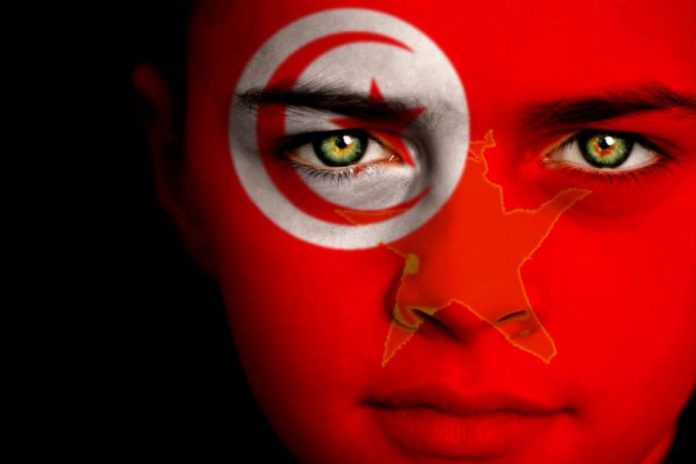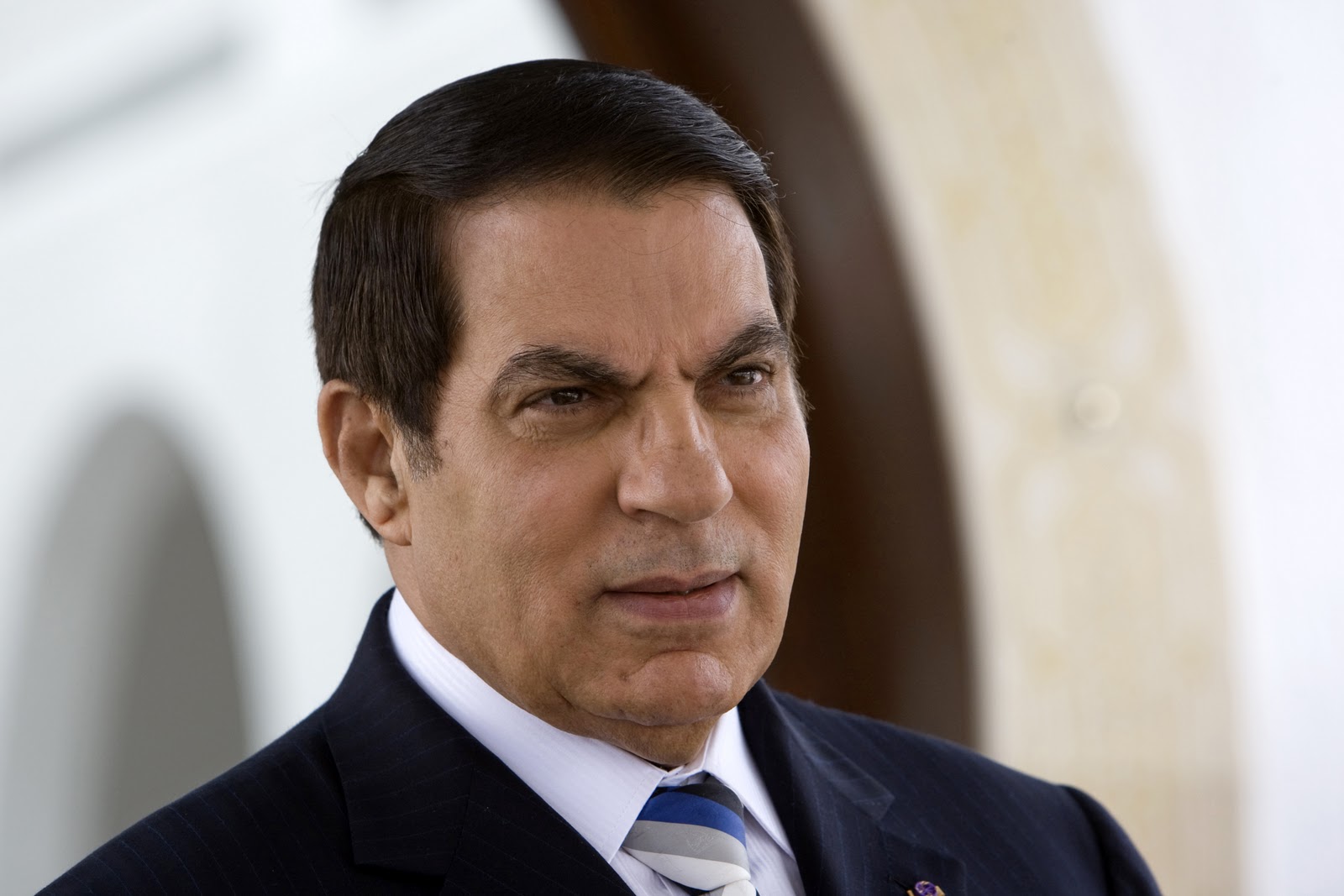
In early January 2015, one of the first actions President Obama undertook was to pick up his phone and congratulate Beji Caid Essebsi in Tunisia. The newly elected president received praise from Obama, winning the first Tunisian election under a new ‘democratic’ constitution since the revolution that started the domino effect for the Arab Spring.[1]
The Tunisian Revolution, also known as the ‘Jasmine Revolution,’ drove out a reigning president of 23 years, from his power of repression. President Ben Ali (Zine El Abidine Ben Ali) was forced to flee to Saudi Arabia after his people revolted. Poverty, the lack of political freedoms and freedom of speech were marched against and the people of Tunisia eventually ousted the dictatorial president. Many lives were lost, but the Tunisian’s started to witness the ‘democratization’ of a country. Or so they thought…
Rewind a few months before the new presidency – during the campaigning of elections to evaluate a case study of a man named Mohamed Ali Snoussi.
Mohamed Ali Snoussi died October 3, 2014, shortly after being arrested by police on September 24th. “A group of police officers stormed into our home with their faces covered,” says his wife, Ahlem, to Amnesty International. “They beat him with sticks and stripped him of his underwear. They handcuffed him and brought him outside on the street naked. The policemen were saying: ‘We are from Brigade 17; look at what we are capable of doing.’”
According to Salomon, a reported for Live Wire, the family of Mohamed Ali Snoussi are unsure of what happened following the arrest from a suburb of Tunis, the capital of Tunisia. He was taken to Sijoumi police station and held under the pre-arraignment detention period, which can last 6 days under Tunisian law. By the 3rd of October, he was dead.
The family claims his body was covered in bruises, including a large one to the back of his head, back and legs, post-mortem. It was reported that prison officials refused to take him into custody because of his rapidly declining health. Five days after his death, the Ministry of Interior released a statement attributing his death to ‘systemic septic syndrome’ and ‘lung abscess’. Systemic Septic Syndrome can also be a factor in severe trauma, resulting from infection.
The OCTT (Organization Against Torture in Tunisia) is working with families like Mohamed Ali Snoussi’s and Amnesty International to stop the torture against innocent civilians in the context of counter-terrorism operations. In the new constitution in Tunisia, everyone is to be protected from torture or other ill treatment. However, like Mohamed, others have died or have been severely wounded. Ali Khemais Louati died while serving a prison term on September 23rd, 2014, under circumstances where medical attention wasn’t provided. A lot is still unknown of this case, but his family claims he had been complaining of severe pain for some time, which was neglected by officials.
Another victim was Arbi Torkhani, who was attacked by two police officers following a dispute with a neighbor on his return home from university. He lost the ability to see out of his left eye as a result of the brutal attack. No officers were held accountable.[2]
This is merely a slight depiction of the terrorism suffered by the Arabs in their countries. The torture against Arabs in Tunisia and other parts of the Eastern world reflect a corruption against all denominations alike; randomly targeting the next civilian, to continue to propagate fear in their communities.
Reporters without borders ranks some of the Arab nations as the poorest in the world with the right of freedom of speech, stating that in some countries, Iran and Syria included, that, “large numbers of security agents listen in to private conversations on the street or in the market, and use reports from informers who shop their neighbors for badmouthing the regime. Taxi drivers can earn handsome supplements by filing reports on their customers.” [3]
In Egypt, the beheadings of four men reported to be ‘Israeli informants,’ but only because of forced confessions after the abductions highlights some of the terror occurring. The group carried out their first beheading in 2012. Though considered a Jihadist group, the government of Egypt have engaged in military operations against them; the acts of terror against their own people are all too real in the Middle East.[4]
It is a ritual in the daily life of civilians in the Middle East. They too are at the receiving end of random terrorist acts, not only by groups, but by their own governments. It’s important to acknowledge this rather than accept it. As one man, a reporter in Jerusalem said, “…by its very design and purpose, terrorism is a violation of all norms of behavior, law, and combat. Its objective is to demoralize, dehumanize, humiliate, and horrify through acts of random and demonstrative viciousness.” But he recognizes the importance of remaining ‘human,’ in spite of the actions surrounding them. “And almost instinctively, the human spirit fights back by reaffirming the very spirit that terror seeks to erode.” [5]
But the terror continues nonetheless. Joe Stork, a writer on these topics, highlights the importance of Human Rights during war and acts of terrorism by stating, “The principle of civilian immunity prohibits attacks that target civilians, as well as attacks that indiscriminately harm civilians-that is, in which the attacking party does not or cannot distinguish between civilians and military objectives. States and non-state armed groups responsible for such attacks are committing violations of IHL (International Humanitarian Law).” He goes on to say, in regards to the Middle East, that, “…the disregard for civilian immunity has resulted in war crimes and crimes against humanity by members of both national armed forces and opposition armed groups.”[6]
It is an interesting article about the Middle Eastern government’s attitudes towards their civilians and the harm that has occurred. And though it was written in 2010, the thoughts are as valid, if not more so, today, as his warnings and observations become a reality.
[1] Jackson, D. (2015, January 5). Obama calls new president of Tunisia. [USA Today]. Retrieved from http://www.usatoday.com/story/theoval/2015/01/05/obama-tunisia-beji-caid-essebsi/21300085/
[2] Salomon, J. (2014, October 17). Torture and death in custody in Tunisia. [Live Wire]. Retrieved from http://livewire.amnesty.org/2014/10/17/torture-and-death-in-custody-in-tunisia/
[3] International. (2015, January 27). Unholy Silence. [The Economist]. Retrieved from http://www.economist.com/news/international/21640747-middle-east-free-expression-rarity-blasphemy-laws-are-favoured-tools?fsrc=scn/tw/te/bl/unholysilence
[4] Sheva, A. (2014, August 28). Sinai Jihadist Group Claims It Beheaded Four Men. [AFP]. Retrieved from http://www.israelnationalnews.com/News/News.aspx/184521#.VM15f5v9nIV
[5] Schmemann, S. Terrorism Against Civilians.[Crimes of War]. Retrieved from http://www.crimesofwar.org/a-z-guide/terrorism-against-civilians/
[6] Stork, J. (2010) Civilian Protection and Middle East Armed Groups: In Search of Authoritative Local Voices. [Human Rights Watch]. Retrieved from http://www.hrw.org/world-report-2010/civilian-protection-and-middle-east-armed-groups-search-authoritative-local-voices






the terrorisme in arabic states are created from their police and governement which is supported by occidental and antiarab like USA ISRAEL and other state that don’t want the arabic pepole and uslims be in peace
The populace of Tunisia are not Arabs; they are Berbers. This is also true in Algeria and Morocco.
you painted the situation in Tunisia so Black! yes, it is true torture and police abuse didn’t completely vanish, i can say the same about other countries, and not only the arabic one (as you can attest about the CIA methods) anyway, i felt unconfortable being called arabs, yes we are (we consider that we belong to the arabic and islamic world) but our culture and identity is not exactly the same.. the kind of shades that make the difference ( i don’t mean that we are better, just different and perhapes less conservative..) what we are experiencing in here, is a real change: you have no idea, i guess, of how it used to be before the revolution.. nothing is garanteed we are fully aware of that, we have to keep watchng the progress and be vigilant